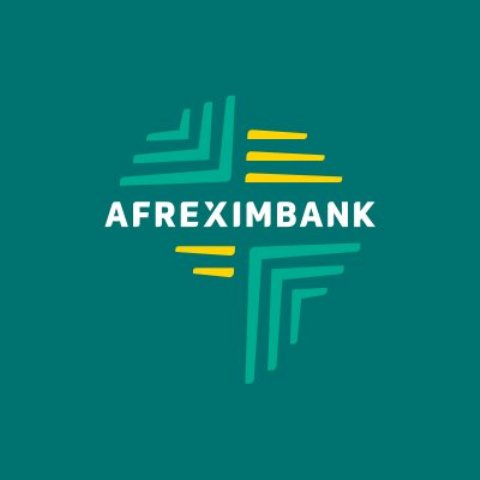Afreximbank Boosts Oando RBL Facility to $375M to Power Nigeria’s Oil Growth
The upsizing comes after Oando significantly paid down the original $525 million RBL facility, secured in 2019, to $100 million by early 2024.

- Country:
- Egypt Arab Rep
In a significant move to strengthen Nigeria’s oil production and enhance financial resilience within Africa’s energy sector, the African Export-Import Bank (Afreximbank) has successfully upsized its Reserve-Based Lending (RBL) facility to $375 million in favor of Oando Oil Limited, a subsidiary of Oando PLC.
The strategic refinancing initiative, executed in collaboration with Mercuria Asia Resources PTE Limited, a global leader in energy and commodities trading, marks a major milestone in Oando’s capital optimization strategy and reaffirms its commitment to increasing Nigeria’s energy output, local content, and economic self-reliance.
Refinancing Positions Oando for Growth
The upsizing comes after Oando significantly paid down the original $525 million RBL facility, secured in 2019, to $100 million by early 2024. This reduction created substantial financial headroom, enabling the company to refinance under improved terms and reinforce its balance sheet. The expanded facility gives Oando the financial capacity to advance its upstream ambitions and optimize asset performance.
Oando aims to scale its production capacity to 100,000 barrels of oil per day and 1.5 billion cubic feet of gas per day by 2029. These targets are expected to significantly boost Nigeria’s oil and gas output, elevate the country's profile in the global energy market, and create broader socio-economic impacts through job creation, infrastructure development, and technological innovation.
Supporting Local Content and Energy Sovereignty
Commenting on the deal, Wale Tinubu, Group Chief Executive of Oando PLC and Executive Chairman of Oando Energy Resources, emphasized the strategic importance of the transaction:
“We are pleased to have completed the upsizing of our RBL facility, a strategic milestone that reinforces our commitment as Operator of the Oando-NEPL JV to maximizing the value of our expanded asset portfolio. Our Joint Venture holds extensive reserves with the potential to generate over $11 billion in net cash flows to Oando over the assets’ life.”
He described the new working capital facility as a “critical enabler” that will allow Oando to efficiently extract and monetize its hydrocarbon resources, ensuring long-term value for both local and international stakeholders.
Afreximbank: Championing African Energy Autonomy
The deal is equally significant for Afreximbank, which continues to position itself as a pivotal financier of African energy development, particularly in the context of rising global concerns about energy access, sustainability, and local value creation.
Mr. Haytham Elmaayergi, Executive Vice President of Afreximbank’s Global Trade Bank, said:
“This transaction advances our strategy for promoting local content in Africa’s oil and gas sector. Afreximbank remains a longstanding financial partner to Oando and its affiliates, and we’re proud to support its continued expansion.”
Elmaayergi also lauded the participation of Mercuria, calling its involvement a validation of Oando’s growth vision. Mercuria’s financial muscle and global energy trading expertise add robustness to the deal, ensuring that the necessary financial tools and risk management frameworks are in place to execute Oando’s aggressive production roadmap.
A New Era of Strategic Capital Management
The enhanced RBL facility reflects a broader trend among African energy firms toward refined capital structures, longer-term investment strategies, and deeper regional and international collaboration.
By aligning its financing with production targets and operational scaling, Oando is not only preparing for short-term growth but also repositioning itself for long-term relevance in a world that is simultaneously grappling with energy transition and supply shortages.
The company’s joint venture with the Nigerian National Petroleum Company Exploration and Production Limited (NEPL) brings together public and private sector strengths. This collaboration is expected to increase operational efficiency, improve recovery rates from mature fields, and leverage advanced technologies for sustainable production.
Energy Sector Multiplier Effects
The successful upsizing of the facility has implications that go far beyond Oando’s balance sheet. Key anticipated outcomes include:
-
Job creation across exploration, drilling, logistics, and support services
-
Infrastructure upgrades in oil-producing regions
-
Increased foreign exchange earnings from energy exports
-
Technology transfer and capacity building
-
Expanded fiscal contributions to Nigeria’s economy
Moreover, as Nigeria faces fluctuating oil prices and pressure to diversify its energy mix, the stable growth of a local oil major like Oando provides a level of market confidence and continuity, especially in managing strategic assets previously controlled by international oil companies.
A Catalyst for Broader Continental Gains
Oando’s progress will likely inspire similar efforts across Africa, where several nations seek to localize resource control, boost indigenous capacity, and unlock value from existing reserves. By channeling development finance toward scalable, locally led projects, Afreximbank is laying the foundation for a more autonomous, self-reliant African energy ecosystem.
This initiative aligns with Afreximbank’s mandate to promote intra-African trade, industrialization, and sustainable growth through tailored financing, advisory services, and technical support.
The $375 million upsizing of the Oando RBL facility is more than a financial arrangement—it is a bold statement of confidence in Africa’s indigenous energy champions. It also illustrates what can be achieved when African financial institutions, local producers, and international partners coalesce around a shared vision for energy security, economic growth, and sustainable development.
As Oando continues its drive toward ambitious production goals, it does so with a fortified balance sheet, strategic alignment, and a blueprint that could define the next chapter of Africa’s oil and gas evolution.
ALSO READ
Unlocking India's Tourism Potential: The Visa and Infrastructure Challenge
Immersive tech boosts rail infrastructure monitoring accuracy
Pushkar Singh Dhami Seeks Central Aid for Development and Infrastructure in Uttarakhand
Oil and Gas in Turmoil: Impact of Iran-Israel Conflict on Energy Infrastructure
Mandatory Water Bill for Property Registration: A Game Changer for Delhi's Water Infrastructure










